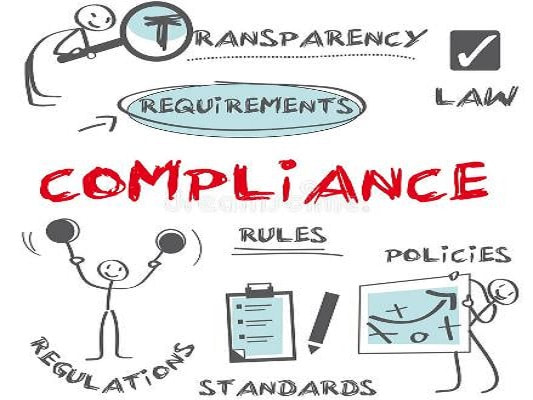 by Amy Kleinschmit, Chief Compliance Officer Call Report Webinar The National Credit Union Administration (NCUA) has announced it will be holding a second webinar on Call Report Changes. This second webinar will be on March 8th at 1:00 p.m. (CT) and will be covering changes for natural person credit unions effective with the March 2022 reporting cycle, including new schedules for risk-based capital and the Complex Credit Union Leverage Ratio (CCULR), which became effective on January 1st. Registration can be found here. Participants can submit questions any time during the presentation or in advance by emailing [email protected]. The email’s subject line should read, “Call Report Changes.” In case you missed the first webinar on Call Report that was held February 10th, you can find that webinar here. For additional information about the NCUA’s 5300 Call Report form, visit the CUOnline and 5300 Call Report FAQs webpages. Letter to Credit Unions The NCUA recently issued two Letters to Credit Unions, specifically 22-CU-04 regarding Equal Credit Opportunity Act Nondiscrimination Requirements and 22-CU-03 regarding Special Purpose Credit Programs. Letter 22-CU-03 includes an Interagency Statement on special purpose credit. As discussed in the Interagency Statement and Letter to Credit unions – the Equal Credit Opportunity Act and Regulation B, “permit creditors to extend special purpose credit offered pursuant to:
The Letter discusses the benefits of offering special purposes credit programs and encourages creditors to explore opportunities to develop these programs consistent with the Equal Credit Opportunity Act and Regulation B. Letter to Credit Unions 22-CU-04 focuses on ECOA nondiscrimination requirements. As noted in the Letter, “the NCUA has prepared this letter to summarize general nondiscrimination requirements and signal fair lending risk areas related to marital status, age, income consideration, redlining, and indirect lending.” As a reminder, NCUA’s 2022 Supervisory Priorities indicated that fair lending was to be an area of focus for examiners in 2022. “Examiners will identify fair lending policies and practices that indicate discrimination risk or loan portfolio and underwriting discrimination risk. In addition, examiners will assess whether a credit union has policies and procedures to evaluate the consistency, fairness, and accuracy of the appraisals it obtains.” Credit unions should review Letter 22-CU-04, especially the risk areas that are discussed in greater detail. With regard to the marital status risk area, for example, the letter explains, “A common marital status discrimination violation involves risk-based pricing practices. When two applicants or signers are involved in a lending transaction, a lending policy cannot provide for different pricing guidelines based solely on applicants’ or signers’ marital status, in violation of ECOA. For example, when two applicants are involved, a credit union cannot price loans based on the higher of the two applicants’ credit scores when they are married but based on the primary applicant’s credit score when the applicants are unmarried.” Another risk area, age, is discussed in the letter. The NCUA notes that age discrimination violations in credit unions typically involve automatic loan approval systems and guidelines. The letter also discusses indirect lending, noting that “the use of discretionary markups presents fair lending risks not usually associated with flat fee or flat percentage compensation structures. Credit unions that permit discretionary markups should ensure their fair lending compliance management systems are sufficiently robust to enable the credit union to measure and address prohibited basis pricing disparities.” NCUA Interim Final Rule At the recent NCUA Board meeting, the Board approved an Interim Final Rule relating to its prompt corrective action regulations. This interim rule is effective when published in the Federal Register and is open for a 60-day comment period. The Interim Final Rule amends prompt correction action regulations to temporarily extend the NCUA’s ability to issue an order applicable to all FICUs to waive the earnings retention requirement for any FICU that is classified as adequately capitalized. The Interim Final Rule also extends a provision that modifies the specific documentation required for net worth restoration plans for FICUs that become undercapitalized. These temporary provisions will remain in place until March 31, 2023. Compliance Outlook Issue – adverse action notices. In case you missed it, the Fourth Issue for 2021 of the Consumer Compliance Outlook newsletter takes a closer look at adverse action notice requirements under the Equal Credit Opportunity Act, as implemented by Regulation B. More specifically, this article focuses on adverse action notices requirements as it relates to counteroffers, incomplete applications and withdrawn applications. The article also provides discussion on properly handling inquiries, preapprovals and prequalification issues. Another, “in case you missed it” reminder – the recording of the 2021 Fair Lending Interagency Webinar is available on demand here. Eight federal agencies, which included the NCUA, held a webinar on December 7, 2021 to discuss a variety of Fair Lending topics, including: Recent Fair Lending Guidance Documents; Analyzing HMDA Data; Enterprise Fair Lending Data; Fintech Risk Management; Redlining Self-Assessments; Redlining & Marketing; DOJ Redlining Initiative and Recent Enforcement; and JP Morgan Chase Conciliation Agreement. Fair Lending Solution Obviously, there is a lot of focus on fair lending from regulators. If your credit union is looking for a compliance solution, consider the Fair Lending Risk Assessment from AffirmX. This solution helps you manage fair lending risk by highlighting areas that need work to help you determine where to focus your efforts going forward. Through a series of questionnaires, interviews with key staff members, and a review of strategic documents, AffirmX will assess how the institution is organized to address its compliance with: HMDA; Equal Credit Opportunity Act (ECOA); Fair Housing Act (FHA); Retail presence and marketing strategy; Credit administration; Exception management and the role of third- party vendors. For questions, including pricing or to schedule a demonstration, please contact Amy Kleinschmit. For a quick introduction to this product, check out this video. Comments are closed.
|
The MemoThe Memo is DakCU's newsletter that keeps Want the Memo delivered straight to your inbox?
Archives
July 2024
Categories
All
|
|
Copyright Dakota Credit Union Association. All Rights Reserved.
2005 N Kavaney Dr - Suite 201 | Bismarck, North Dakota 58501 Phone: 800-279-6328 | [email protected] | sitemap | privacy policy |





